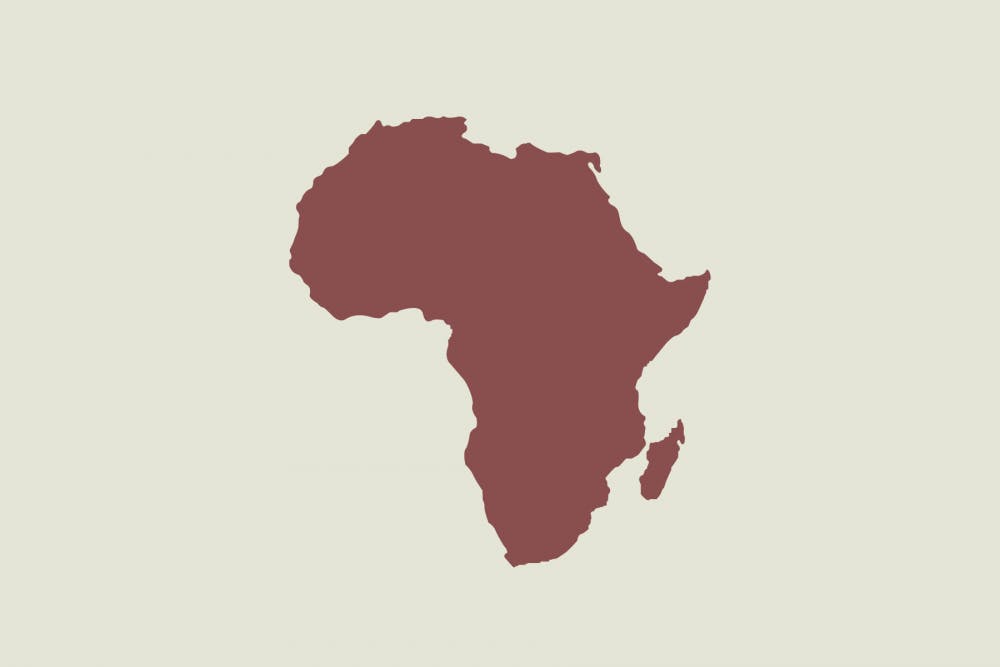The 2017 census data identified nearly 83 percent of Ohio as white, but Ohio University seeks to combat that through its highly successful African Studies program.
With such low ethnic diversity, it can be easy for individuals to grow up uneducated about other cultures and countries because they simply aren’t exposed to them. That’s where OU comes in.
The program offers languages like Akan, Kiswahili and Wolof and requires courses such as African literature and African history. Students are given the opportunity to learn the languages of African countries while also being educated about cultures and traditions through a hands-on approach.
The majority of incoming students that have an interest in the African Studies program have a prior background studying, volunteering or living in an African country. However, the African Studies program also aims to educate those that have no experience with Africa or African cultures, opening the minds of OU students who take a class.
“What we try to do here is make sure that Africa is present in Ohio University,” Ghirmai Negash, associate director of the African Studies program, said.
Negash is also a professor of English and African literature in the Department of English, so he has firsthand knowledge of how strongly the African Studies program benefits OU students and alumni.
Some of his most impactful experiences at OU were through the African Studies program, such as the African Literature Association Conference in 2011 and the Ohio World Music and Dance Festival. Both events educate students by bringing scholars from all around the world and introducing African cultures to campus.
The African Studies program offers an extensive collection of books and media on African culture funded by a Department of Education grant. This means librarians can do more than just provide knowledge to students — they can present extensive exhibits on African culture in Alden Library.
The most recent exhibit covered famous African leaders. These exhibits expose students to African cultures and history even if they aren’t taking any African Studies courses, something that is necessary in order for students to become more educated and open-minded about foreign cultures.
“At times, most of the time, in the press, they don’t portray a positive view of Africa,” Araba Dawson-Andoh, subject librarian for African Studies, said. “So, the program allows the students here to get a better understanding of Africa instead of relying on their negative views. The program allows the students to (have) a positive sense about Africa.”
Dawson-Andoh said the African Studies program also brings a lot of students from Africa to OU.
“It helps Ohio University students who might not know an African to meet an African because Ohio University is in an area that isn’t very … diverse,” Dawson-Andoh said.
OU is also well-known for its African Studies program due to the highly successful alumni that have come out of it. Matt Kirwin, one of the most notable alumni of the African Studies program, has a master’s degree in African Studies. Kirwin has gone on to work in the U.S. State Department, studying migration and healthcare access in different African countries.
David Crane is another recognized graduate of the African Studies program. He was the chief prosecutor of the Special Court for Sierra Leone. During his time in that position, he led the investigation that eventually resulted in the arrest of Liberian President Charles Taylor. Crane will be a visiting professor in November.
Rosa Armstrong, a graduate student studying African Studies, was originally getting her master’s degree in French. Armstrong turned her focus to African Studies because it offers more freedom and opportunity to students.
“With French, it was a little bit more inward-looking in the sense that you only stayed in Gordy (Hall) and you don’t go anywhere else,” Armstrong said. “It’s just you and the book. It’s interesting, but at the same time, African Studies offers you the opportunity to take classes outside your immediate focus.”
Armstrong is now looking for a career in international relations with a focus on Africa, so the African Studies program is extremely beneficial to her. Armstrong said many people ask her why she is studying African Studies when she was raised in Ghana and already speaks many Ghanaian languages.
“It gives you that foundation to take off from,” Armstrong said. “It gives you basic ideas that you can build on. It gives you that curiosity.”






